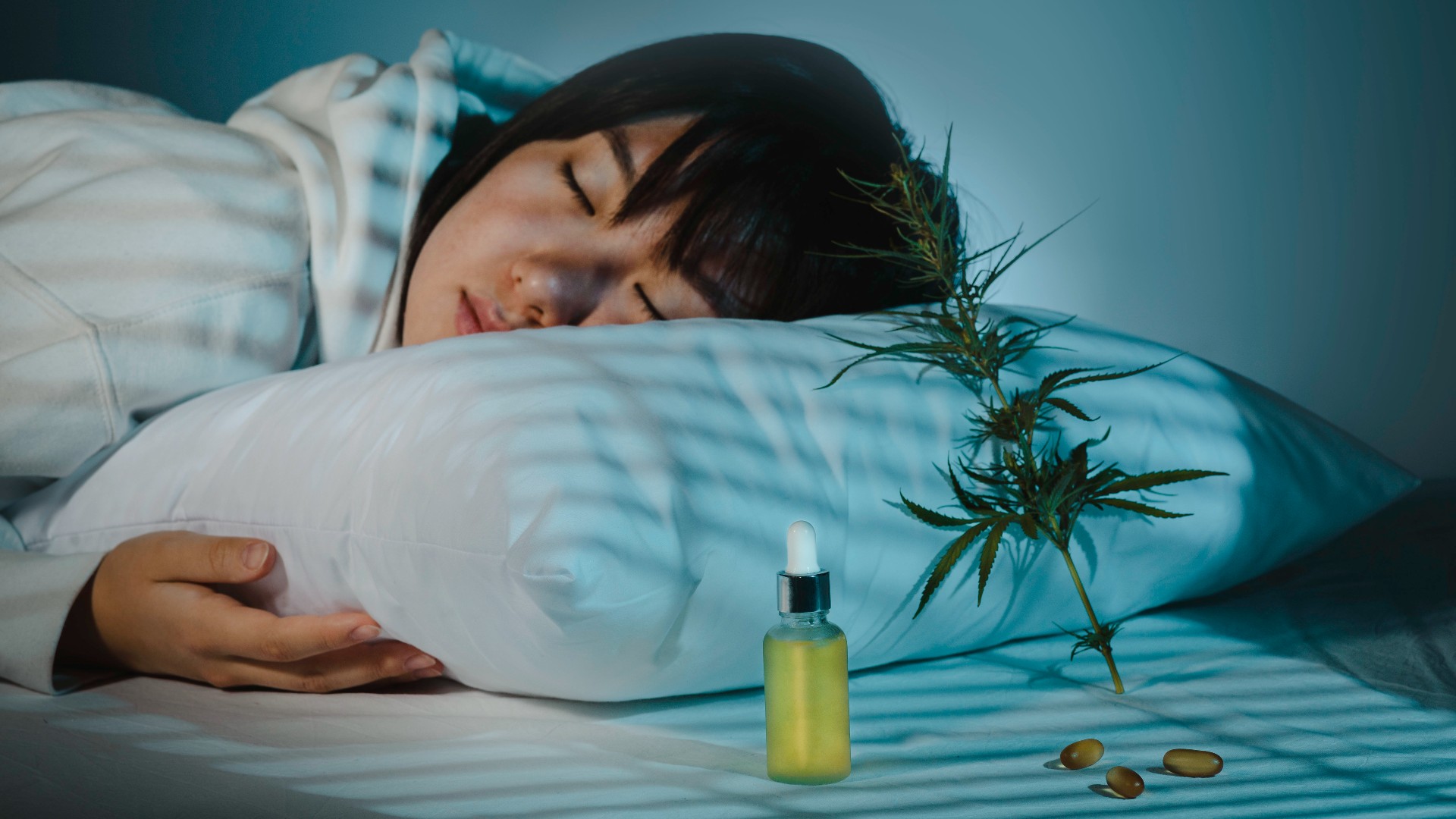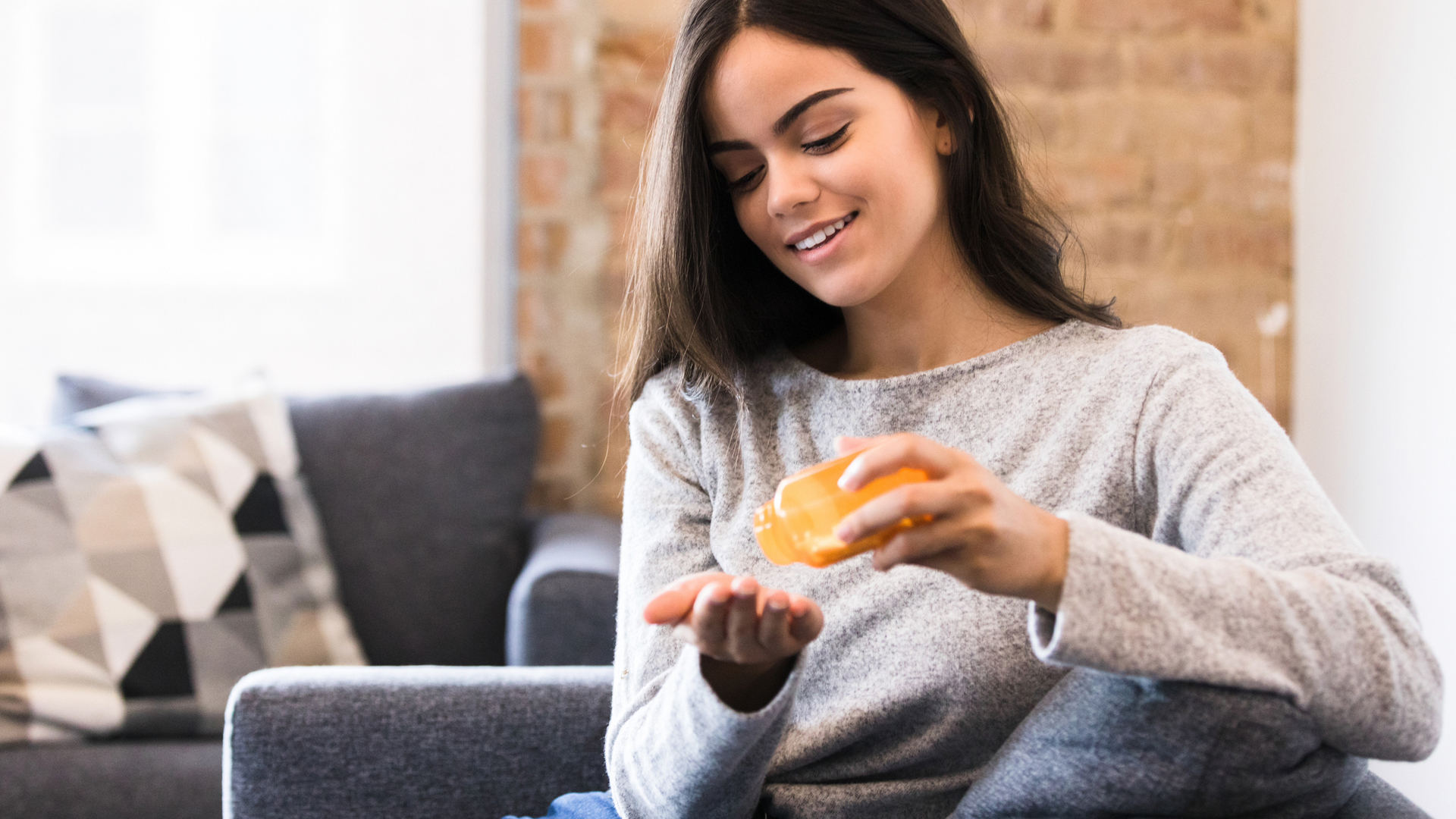What are the best supplements for sleep?
Discover the best supplements for sleep concerns so you can doze off every single night

If you are someone who is experiencing poor sleep, you may wish to consider taking a sleep supplement to help improve this. There are numerous sleep supplements widely available that are safe but it can be hard to know which one to choose as their efficacy ranges. Here, we’ve examined the best supplements for sleep as supported by medical research and recommended by health professionals.
Consistently having a good night’s sleep is indispensable for our physical health and mental wellbeing. We all know how hindering and exhausting a poor night’s sleep can be on our daily performance and mood. A National Sleep Foundation report recommends adults should aim to have between seven to nine hours of sleep each night and maintaining this pattern is key for the circadian rhythm we enjoy in the sleep-wake cycle.
Research has shown sleep provides us with numerous physiological benefits, such as improved cardiovascular health by lowering blood pressure. Another benefit is bolstering our immune system, which helps protect us from illness and infection. Sleep also acts as an important stress alleviator and can even help reduce feelings of anxiety and depression.
Although we will carefully select and examine the best supplements for sleep to help you enjoy a healthier experience, please always consult your doctor or a healthcare professional before including any new supplements in your dietary regime.
- Related: The best magnesium supplement
Can supplements help with sleep?
The efficacy of the best supplements for sleep in helping you enjoy better sleep is a highly contested area. Some medical professionals, such as Dr Suzanne Bertisch, clinical director of Behavioral Sleep Medicine at the Harvard-affiliated Brigham and Women’s Hospital, have cautiously said, “there is limited evidence for some of these supplements, and evidence against the use of others”.
Meanwhile, others, such as Dr Mahmud Kara, have spoken positively about how using sleep supplements like valerian root and lemon balm has benefited him in his professional life. What is unanimous among experts is that the best supplements for sleep should form one part of a number of lifestyle habits that can help you enjoy better sleep. Other habits such as avoiding caffeine and alcohol, not using blue-light emitting electronic devices and regular exercise are considered the most effective strategies for improving your sleep.
When it comes to the most common sleep supplements, such as Cannabidiol (CBD), valerian root plant and chamomile herb, the research is mostly inconclusive with further trials necessary.
CBD comes in various forms, such as the Food and Drug Administration’s approved Epidiolex, topical solutions and capsule solutions. Preliminary research in Current psychiatry reports has found CBD may have therapeutic potential for the treatment of insomnia, but ultimately, researchers emphasize that further controlled and longitudinal research is required to understand CBD’s clinical implications.
- Related: Does magnesium help you sleep?
Valerian root is a dried herbal remedy, but it has not been approved by the FDA for medical use. Research in the American journal of medicine on the Valerian root plant has suggested this supplement may improve sleep quality, but as with CBD, larger and randomized controlled trials are required before firm conclusions can be drawn. A study in Complementary therapies in clinical practice also found positive results for women experiencing sleep disorders during menopause after using valerian and lemon balm.
Chamomile is an aromatic European plant herb of the daisy family with white and yellow flowers. German chamomile is the most widely used variety and is a medically prescribed substance in 26 countries. Research in Phytotherapy Research has found chamomile to be efficacious for sleep quality and General Anxiety Disorders.

Are supplements for sleep safe?
It is important to emphasize that sleep supplements aren’t regulated by the FDA so quality assurance and safety may vary from product to product. Harvard Health recommends that you look for supplements that display a seal from the U.S. Pharmacopeia, ConsumerLab.com or NSF International. In addition, you should always consult your doctor or a healthcare professional before taking any of the best supplements for sleep.
Taking CBD poses little to no risk but it may increase liver enzymes for those taking medications metabolized by the liver such as statins, blood thinners and anti-inflammatories.
For Valerian root, adverse effects are rare, however side effects like headaches, dizziness and gastrointestinal disturbances were reported in clinical trials. According to the NIH, pregnant women and children younger than 3 years old are cautiously advised to not take this supplement.
Finally, chamomile is mild and safe with many enjoying it in tea-form before bedtime. Nevertheless, it has been known to cause allergic reactions if those sufferers have previously experienced adverse reactions to ragweed, daisies and chrysanthemums. Again, it is not recommended for pregnant women or those breastfeeding as little research has been conducted on its safety in these circumstances.
Above all, as Dr Epstein, an instructor in medicine at Harvard Medical School stressed to Harvard Health Publishing, “most sleep problems can be corrected without medication…sleep problems are often caused by many things, not just one thing that can be fixed with a pill.”
Tips for improving the quality of your sleep
When considering adding supplements for sleep to your diet, it is important to appreciate that these are supplementary to sensible lifestyle choices that will overall prove more beneficial to your sleep hygiene.
The first and cheapest measure is to create a sleep-wake schedule and adhere to it. This will help you to maintain a circadian rhythm, which research in the Psychiatric Clinics of North America suggests helps the body’s mental and physical systems work in conjunction.
Another healthy lifestyle choice you can make is to avoid caffeine and alcohol, as each can cause significant sleep disruption and even ongoing disorders.
- Related: Five foods that help you sleep
- Related: Should you exercise before you sleep?
Finally, it can be helpful to limit your tech use before sleeping. While many of us have grown accustomed to staring at electronic devices late into the night, research has found that blue light-emitting devices can suppress the production of melatonin and increase alertness.
Ultimately, there is no easy fix when it comes to improving your sleep patterns. While taking supplements may help you doze off in the evening, they are unlikely to be a miracle cure. We recommend taking steps to improve your overall sleep hygiene and, if you’re still struggling, speak to your doctor.
Sign up for the Live Science daily newsletter now
Get the world’s most fascinating discoveries delivered straight to your inbox.
Jack Phillips is a freelance content writer and journalist based in London, UK. He has an undergraduate degree in politics and is currently working on a post-graduate diploma in law. He frequently writes SEO content and researches fitness, health, nutrition and lifestyle features. In the future, he hopes to combine his interests in law and health and work with emerging health technologies to shape health policies.










